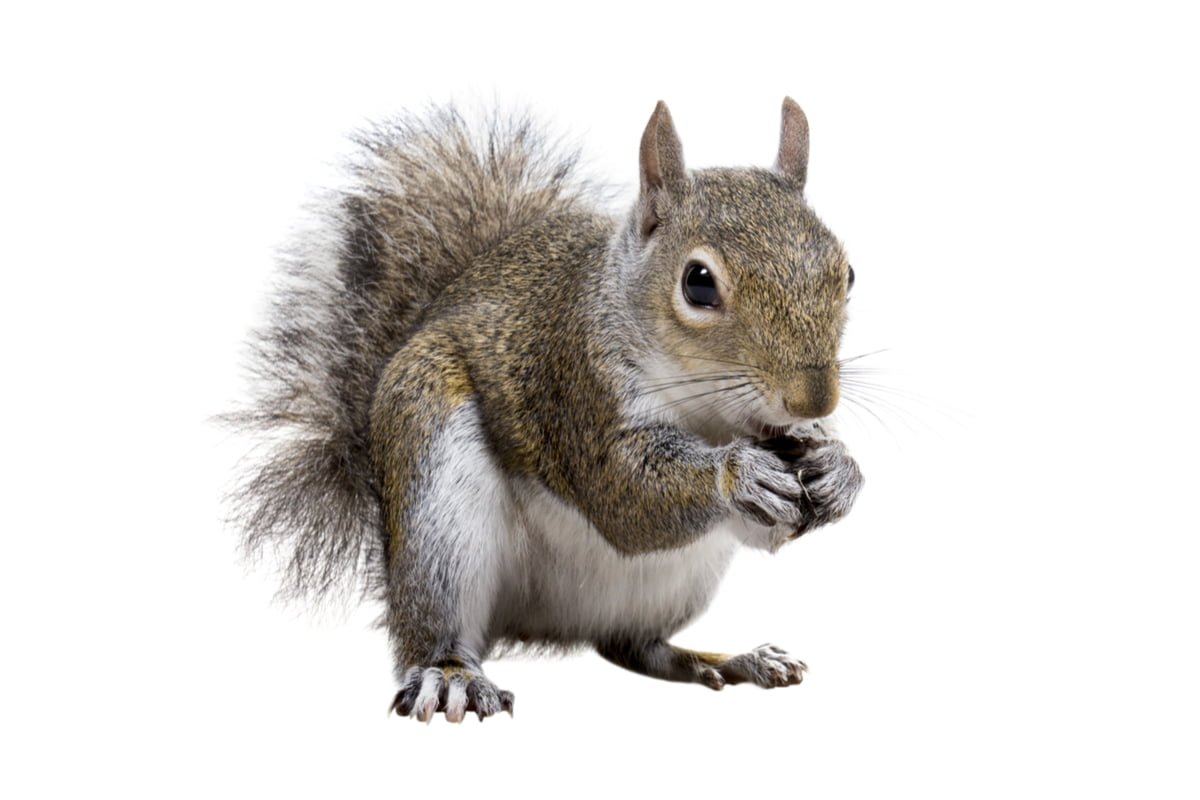The Squirrel
Appearance
The color of a squirrel varies depending on the species. In the case of the eastern gray squirrel, its fur can vary from pale gray to black and is longer and thicker in winter. These small mammals are identifiable by their small upright ears and their big bushy tails.
Think you might have found this animal in your home?
Talk with an Expert
Life Cycle
The gestation period of the female lasts from 40 to 44 days and, on average, gives birth to 1 to 6 squirrels. In captivity, gray squirrels can live for 15 to 20 years, but in the wild, its lifespan drops to under 6 years due to the lack of food and water, diseases, predators and other environmental factors.
Habitat and Food
The squirrel spends most of its time in trees, where he moves with great ease. More often found in the woods, it has adapted to the proximity of humans, and can often be found in parks and residential yards. A squirrel feeds primarily on acorns, nuts, berries, flowers, buds, cambium from trees, maple sap, seeds, mushrooms, chicks, eggs and insects.

Undesirable Effects
It happens occasionally that a squirrel gets into a home and hides there. In this case, it can cause structural damage and leave feces. It is therefore recommended that a technician catches it and places the squirrel back into its natural environment.
Signs of Infestation
Usually a squirrel can be heard when it is present. As well, it leaves small oval-shaped droppings or damages areas where it has gnawed and stashed leftover food or food stocks.